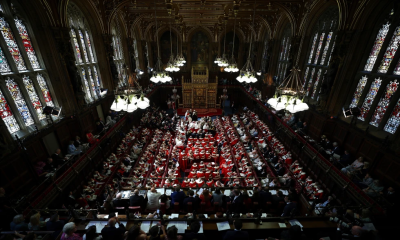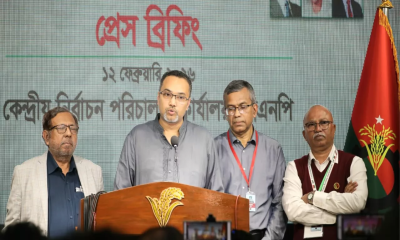The director of a top Russian science institute, arrested on suspicion of treason along with two other hypersonic missile technology experts, stands accused of betraying secrets to China, two people familiar with the case told Reuters.
Alexander Shiplyuk, head of Siberia`s Khristianovich Institute of Theoretical and Applied Mechanics (ITAM), is suspected of handing over classified material at a scientific conference in China in 2017, the sources said.
The 56-year-old maintains his innocence and insists the information in question wasn`t classified and was freely available online, according to the people, whom Reuters has chosen not to identify to safeguard their security.
"He is convinced of the fact that the information was not secret, and of his own innocence," one of the people said.
The nature of the allegations against the ITAM director, who was arrested last August, has not been previously reported. The Chinese connection would make Shiplyuk the latest in a string of Russian scientists who have been arrested in recent years for allegedly betraying secrets to Beijing.
Asked about the accusations facing the ITAM experts as well as about previous treason cases linked to China, Kremlin spokesman Dmitry Peskov said security services were watchful for possible cases related to "betrayal of the motherland".
"This is very important work," he added. "It is going on constantly and it is hardly possible to speak here about any kind of trends."
The FSB security service didn`t immediately respond to requests for comment.
The Chinese foreign ministry, when asked about allegations that Beijing had targeted Russian scientists to obtain sensitive research, said Sino-Russian relations were based on "non-alignment, non-confrontation and non-targeting of third parties".
"This is fundamentally different from what some military and intelligence alliances have pieced together based on their Cold War mentality," it added.
President Vladimir Putin has repeatedly said that Russia is a world leader in hypersonic missiles, cutting-edge weapons capable of carrying payloads at up to 10 times the speed of sound to punch through air-defence systems.
The ITAM cases, as well as previous arrests for treason, suggest Moscow is vigilant about losing any technological edge, including to China, an ally on which it has become increasingly reliant for political and trade support since launching its invasion of Ukraine 15 months ago.
Last year, laser specialist Dmitry Kolker was arrested in Siberia on treason charges but died two days later of cancer. His lawyer Alexander Fedulov told Reuters last week that Kolker was accused of passing secrets to China, an allegation that the scientist`s family denied.
Alexander Lukanin, a scientist from the Siberian city of Tomsk, was arrested in 2020 on suspicion of passing tech secrets to Beijing, Russian state news agency TASS reported at the time. Last year, he was sentenced to seven-and-a-half years in prison.
Valery Mitko, a scientist heading the Arctic Academy of Sciences in St. Petersburg, was also accused in 2020 of passing secrets to China, where he had travelled regularly to give lectures, TASS said at the time. He died two years later at the age of 81 while under house arrest.
Against the background of the war in Ukraine, Russia`s parliament voted last month to increase the maximum penalty for treason to life imprisonment from 20 years. On Tuesday, the head of the security committee of Russia`s lower house of parliament backed a draft law tightening access to state secrets, saying 48 Russians had been convicted of treason between 2017 and 2022.
able to contact Wang directly.




-20260219110716.webp)
-20260219054530.webp)


-20260218060047.jpeg)
-20260216055149.webp)























